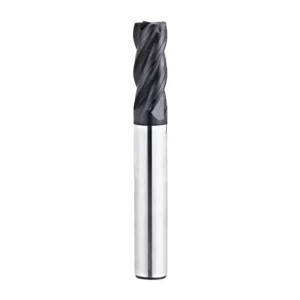When it comes to purchasing end mills for sale, there are several important factors to consider. These cutting tools play a crucial role in machining processes, so making the right choice can greatly impact the efficiency and precision of your work. To help you make an informed decision, we have put together a list of key considerations. Read on to discover what you need to keep in mind before buying end mills.
First and foremost, it is essential to consider the material that the end mills are made of. Different materials are suitable for different applications, so it’s crucial to choose the right one for your specific needs. High-speed steel is a popular choice due to its versatility and affordability. It can handle a wide range of materials, from aluminum to steel. However, if you frequently work with tougher materials such as stainless steel or titanium, carbide end mills might be a better option. They offer higher hardness and greater heat resistance, ensuring long-lasting performance.
The geometry of the end mills is another crucial factor to consider. The design of the cutting edges greatly affects the milling process. Two common types of end mill geometry are square and ball nose. Square end mills are excellent for generating flat surfaces and cutting sharp corners. On the other hand, ball nose end mills are ideal for creating contoured surfaces and smooth curves. Choosing the right geometry will depend on the type of work you typically undertake.
In addition to material and geometry, the coating of the end mills should not be overlooked. Coatings provide a protective layer that enhances the durability and performance of the tool. One commonly used coating is titanium nitride (TiN). The gold-colored coating reduces friction and improves wear resistance, making it suitable for a wide range of applications. Alternatively, if you are looking for even better performance, consider end mills with coatings like titanium carbonitride (TiCN) or titanium aluminum nitride (TiAlN). These coatings offer superior hardness and higher cutting speeds.
When purchasing end mills for sale, it’s essential to understand the specific requirements of your machining process. Consider the depth and width of cuts you usually make and the speed at which you operate. These factors will help you determine the appropriate flute length and number of flutes for your end mills. Longer flute lengths are ideal for deep cuts, while shorter flutes provide increased rigidity and stability in high-speed applications. Choosing the right flute length and number will ensure optimal performance and prevent tool deflection.
Lastly, it is important to consider the reputation and expertise of the manufacturer or supplier. Buying from a trusted and reliable source can make a significant difference in the quality of the end mills you receive. Look for manufacturers with years of experience and positive customer reviews. A reputable supplier will also offer guidance and support, helping you choose the right end mills for your specific needs.
Purchasing end mills for sale requires careful consideration of various factors. The material, geometry, coating, and flute characteristics all play a significant role in the performance and durability of the cutting tool. By understanding your specific requirements and seeking reputable suppliers, you can ensure that you make the right choice. Invest your time and effort into selecting the best end mills for your machining needs and unlock the full potential of your operations.

